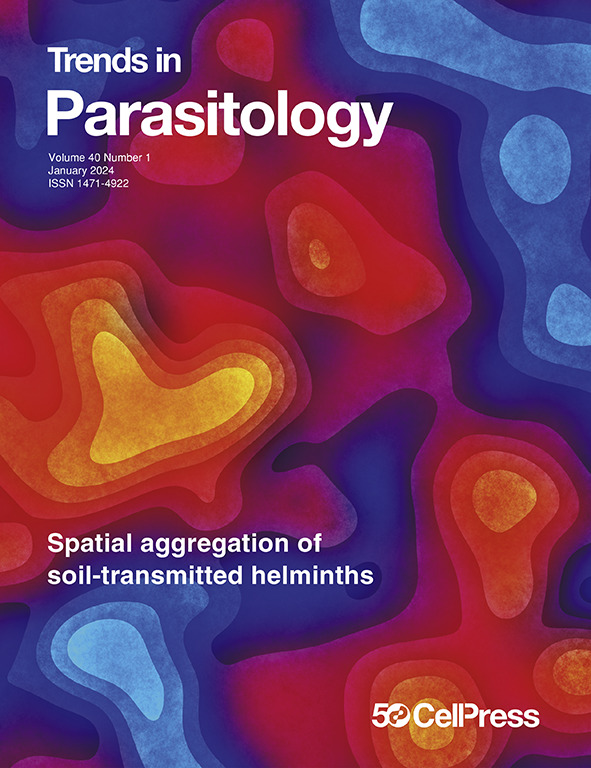利什曼病中的γδ T 细胞:内在因素和结果。
IF 6.6
1区 医学
Q1 PARASITOLOGY
引用次数: 0
摘要
γδ T细胞影响利什曼病的免疫,对利什曼成分、沙蝇及其微生物群作出反应。产生il -17的γδ T细胞通过中性粒细胞募集驱动发病机制,而产生IFN-γ的γδ T细胞通过诱导强烈的Th1反应促进消退。了解它们的激活可以改善免疫反应和利什曼病的控制。本文章由计算机程序翻译,如有差异,请以英文原文为准。
γδ T cells in leishmaniasis: intrinsic factors and outcomes.
γδ T cells influence immunity in leishmaniasis, responding to Leishmania components, sand flies, and their microbiota. IL-17-producing γδ T cells drive pathogenesis via neutrophil recruitment, while IFN-γ-producing γδ T cells promote resolution by inducing a strong Th1 response. Understanding their activation may improve immune responses and leishmaniasis control.
求助全文
通过发布文献求助,成功后即可免费获取论文全文。
去求助
来源期刊

Trends in parasitology
医学-寄生虫学
CiteScore
14.00
自引率
3.10%
发文量
148
审稿时长
6-12 weeks
期刊介绍:
Since its inception as Parasitology Today in 1985, Trends in Parasitology has evolved into a highly esteemed review journal of global significance, reflecting the importance of medical and veterinary parasites worldwide. The journal serves as a hub for communication among researchers across all disciplines of parasitology, encompassing endoparasites, ectoparasites, transmission vectors, and susceptible hosts.
Each monthly issue of Trends in Parasitology offers authoritative, cutting-edge, and yet accessible review articles, providing a balanced and comprehensive overview, along with opinion pieces offering personal and novel perspectives. Additionally, the journal publishes a variety of short articles designed to inform and stimulate thoughts in a lively and widely-accessible manner. These include Science & Society (discussing the interface between parasitology and the general public), Spotlight (highlighting recently published research articles), Forum (presenting single-point hypotheses), Parasite/Vector of the Month (featuring a modular display of the selected species), Letter (providing responses to recent articles in Trends in Parasitology), and Trendstalk (conducting interviews). Please note that the journal exclusively publishes literature reviews based on published data, with systematic reviews, meta-analysis, and unpublished primary research falling outside our scope.
 求助内容:
求助内容: 应助结果提醒方式:
应助结果提醒方式:


